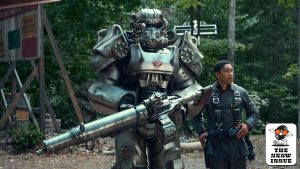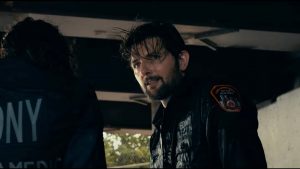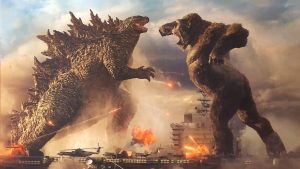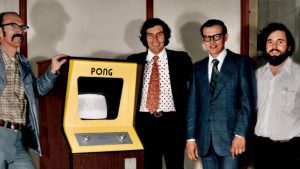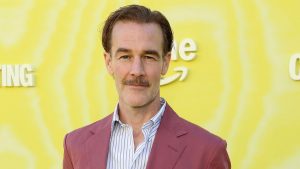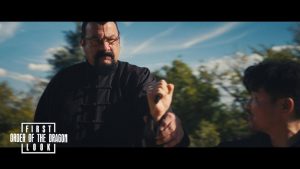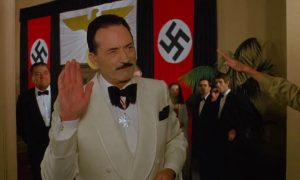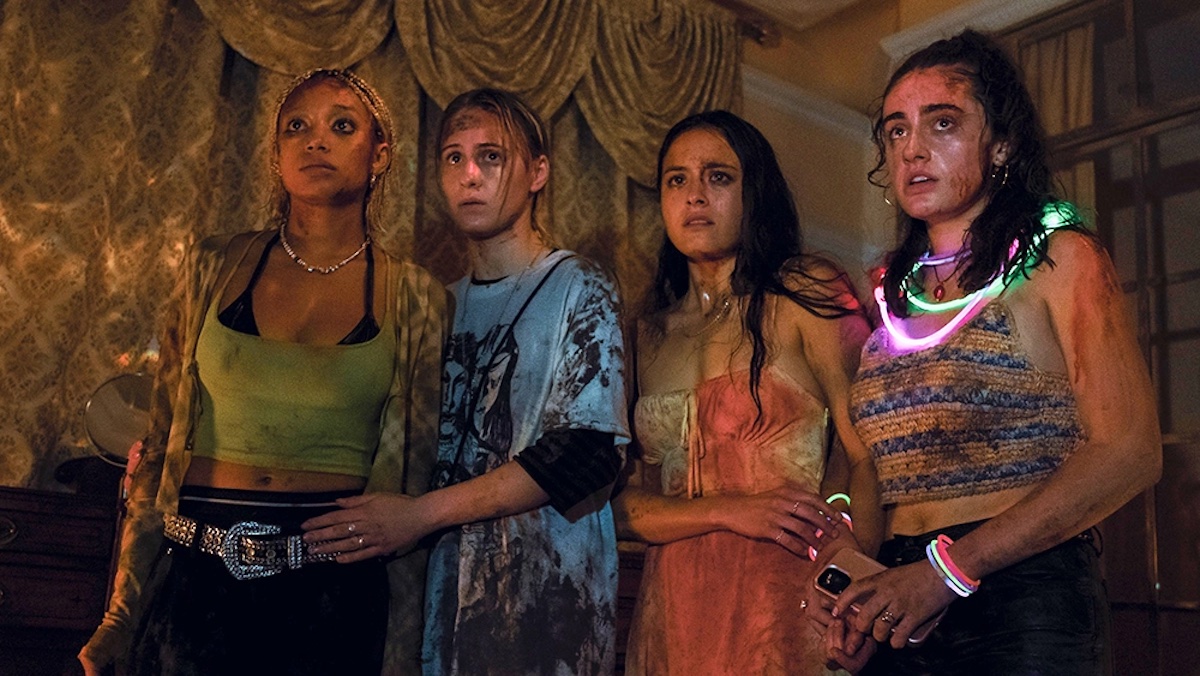
Generation Z consists of the last remnants of births from the 20th century and the early founding generation to have been born in the 21st. The Zillennial generation has witnessed the emergence of numerous social media platforms, the dominance of CG-animation in the film industry, the peak of Disney/Cartoon Network/Nickelodeon, flash games, and the departure of Saturday morning cartoons. Among that, Gen-Z has become more socially conscious, or “woke” as an out of touch loser old dude would say, in the midst of the offerings of humor as we aged into adulthood. As the initial generation to be fully ingrained with social media, we became captivated by films that spoke to our inherent awkwardness.
Largely, we were drawn to movies that challenged the status quo. Film characters were explicitly out of the closet, straight males got to showcase sensitivity without their manhood being questioned, women were more fleshed out and got to act as silly and raunchy as the dudes, and there is a wide array of diverse voices finally getting to be onscreen, allowing others growing up to see themselves reflected.
We also had a fair share of those trying to pander to our demographic. There were, for example, countless YA novel adaptations featuring love triangles and a commercialized teen girl fighting the revolution. However, there were also iterations of Spider-Man in animated and live-action form who created their own youthful web. And notably, we had diverse comedies brimming with absurd humor based on character interactions that diverged from the crude heteronormativity and homophobia of Millennial favorites. Despite the fact that we are only scratching the surface of Gen-Z representation in cinema, emerging filmmakers of this generation are slowly making their way into the industry, and indie filmmakers are achieving the authenticity of being a Zillennial baby. So without further ado, these are the movies that define the Gen-Z generation.
The Shrek Movies (2001 – 2010)
The Shrek movies have defined a good part of Gen-Z’s humor ever since the series began in 2001. Of course we had plenty of other princesses and fairy tales to watch as we grew up too, but there’s something about a fantasy story that lets its main character’s embrace their flaws and be imperfect that appeals particularly to this generation. Shrek is one of the first movies I remember seeing in the movie theater. The DVD release for Shrek 2 has arguably one of the best main menus and special features of all time (anyone else remember Far Far Away Idol?).
There’s a nostalgia for these movies that goes beyond the story and how it felt to watch them in our youth. They help us remember a simpler time before technology became what it is today. How it felt to crack open that plastic DVD case for family movie night or experience a story on the big screen for the first time. Now as adults, we can take our love of Shrek to the next level with Shrek raves that encourage us to dress up and embrace our youth while we still can. As the logline for these events argue, “Cool is dead! Who cares? Come have fun.” And there are few phrases that better encapsulate the somewhat nihilistic mentality of Gen Z, or the feeling of watching Shrek, than that. – Brynna Arens
The SpongeBob SquarePants Movie (2004)
During the era when every television show went to theaters between the late ‘90s and the early 2000s, The SpongeBob SquarePants Movie was the one film that became the fan favorite of the zillenials who grew up with the show’s first three seasons. The SpongeBob SquarePants Movie was the pinnacle of the franchise’s comedic power and the textbook embodiment of a show that took advantage of its feature-length format. SpongeBob and Patrick’s epic quest to find King Neptune’s Crown and Save Mr. Krabs’ life was full of hilarious gags, iconic quotes, stunning 2D-animation, and the best David Hasselhoff cameo of all time.
Just look at the footage of the Chicago 35mm midnight screening and see how enthralled the audience was. Hear how the theater erupts on the final freeze frame of SpongeBob finally getting his manager job and Ween’s Ocean Man needle drop plays. You can’t find that infectious exuberance anywhere else, and no other movie from the early 2000s can emit that either. – Rendy Jones
High School Musical 3: Senior Year (2008)
Where do I even begin? If you were even alive during the late 2000s, the High School Musical trilogy either had you, your friends, or your family in a chokehold. It was THE major phenomenon for our generation, right before the sparkly vampires took its torch a little while after. The third installment, Senior Year, culminated all the G-rated drama built up to that point—with star-crossed lovers Troy and Gabriella grappling with their curtain call as a couple—but for the big screen. To this day, I still consider Disney pushing High School Musical 3 to theaters as their best business decision in the 21st century, including the Marvel and Lucasfilm buyouts. It only took one trailer and kids, and their reluctant parents, flocked to the theaters.
And boy, did Disney let director Kenny Ortega cook with each musical number because the jump in production quality from the DCOM predecessors to this is staggering. Each number popped with sheer artistry and innovation, with top-notch choreography that rivals any other big screen musicals that came out within the past 15 years. Including the ones that came out this year. Who can forget Troy breaking down against the rotating halls of East High during “Scream,” or all the graduates forming a Wildcats symbol in the finale? High School Musical was of the hallmarks of this generation that can never be replicated. – RJ
Coraline (2009)
As Henry Selick’s The Nightmare Before Christmas became a spooky staple for Millennials, his stop-motion adaptation of Neil Gaiman’s Coraline became the staple for Gen-Z in 2009. Coraline was a significant debut for the Oregon-based studio Laika, marking the beginning of features that stood on their own and away from the Tim Burton connection. This would include ParaNorman and Kubo and the Two Strings. – RJ
A spooky, dark vibe, creepy visuals, and a rebellious, do-anything protagonist made this a cautionary tale about being careful with what you wish for. As young, unhappy Coraline (Dakota Fanning) is transported to another world full of button-eyed versions of her dopey journalist parents, the viewer is given a visual feast for their imagination. Until it became a straight-up horror movie and spooked numerous kids to the point buttons became a trigger. And at the height of 3D movies, it was an unforgettable experience unlike anything else at the time. For many Gen-Z kids, it was their first appropriate horror movie that had people coming back for repeat viewings. There’s a reason why the most recent 15-year anniversary re-release this past August grossed more than friggin’ Borderlands and The Crow’s entire domestic run, combined. – RJ
The Avengers (2012)
Every generation has a movie franchise they grow up with. Whether it’s the Dollars trilogy, Star Wars, or Harry Potter, each new generation has witnessed a theatrical saga blossom into a cultural phenomena around them. The Marvel Cinematic Universe is that franchise for Gen Z. While the MCU began with the release of Iron Man in 2008, the saga cemented itself in the pop culture zeitgeist when The Avengers hit multiplexes in 2012. Many pessimistic filmgoers thought the ambitious crossover event wouldn’t work, with too many personalities juggling for screen time in an over-bloated mess of a movie. That, however, was not the case.
The Avengers did work. Not only was the flick extremely well received by audiences and critics alike, it made gobs of money, becoming the first film in history to cross over $200 million during its opening weekend at the domestic box office. In fact, two of its subsequent sequels, Avengers: Infinity War (2018) and Avengers: Endgame (2019) also broke the opening weekend box office record in back-to-back years, with the latter’s $357 million still standing today. If you were to question an average Gen-Z film devotee what their favorite theatrical experience of all time was, more often than not you’ll hear them exclaim something with “Avengers” in the title. – Lee Parham
The Hunger Games Quadrilogy (2012 – 2015)
During the early 2010s, dystopian YA novel adaptations were all the rage —and usually distributed by Lionsgate. Nothing beats teens fighting and dying against the system, and one girl stuck in a love triangle becomes the symbol of freedom. The Katniss Evergreen saga was the epitome of the genre.
What started as Katniss Everdeen’s attempt to save young sister Primrose from serving in the Hunger Games—the annual ritual in which teens from impoverished communities slaughter each other for the one percent’s amusement—turned into a revolution of epic proportions. The series boasted a lot of talent that rendered the series with a theatrical elegance: Woody Harrelson, Lenny Kravitz, Elizabeth Banks, Donald Sutherland, Liam Hemsworth, Philip Seymour Hoffman, and Josh Hutcherson all populated the supporting ranks. And their provided gravitas coincided with Jennifer Lawrence’s rising stardom making her the face of a generational moment.
Despite the disparity in quality between the highly acclaimed Catching Fire and Mockingjay – Part 1, the Hunger Games movies remained a staple of Gen-Z culture. They challenged the teenage fanbase’s mindsets, spawned activists, and presented a compelling drama with thoughtful worldbuilding and fleshed-out characters that left us clamoring for more. – RJ
Moana (2016)
After a long line of Disney princesses who usually found a man by the conclusion of their film, Moana (voiced by Auli’i Cravalho) was a breath of fresh air unlike any other. Its creative team, Ron Clements and John Musker (The Little Mermaid, Aladdin, The Princess & the Frog) saw the girls of this generation deserving an independent, strong-willed princess for them to look up to, and they made one in this Polynesian princess voyager who literally went on a journey of self-discovery. Even the side characters felt nuanced: Her guide was the shapeshifting, self-absorbed demigod Maui (voiced by Dwayne Johnson), who had a buddying brotherly bond with her, and her trusted animal companion was a screaming dopey chicken (voiced by Alan Tudyk), a break from cutesy merchandise sidekicks. – RJ
Moana is a unique film, one that definitely sees the new kids of today who would rather claim their identity through their own strong will and offer a spellbinding journey as timely for every generation to come.
Spider-Man: Homecoming (2017)
Modernizing Peter Parker for the MCU as a late arrival might’ve been a sticky situation for Marvel Studios, but Tom Holland’s current version of the webslinger captured the hearts of Zillennials by just acting like one of us.
Jon Watts’ 1980s-styled romp, Spider-Man: Homecoming, was proof in the pudding that this Pete was a bonafide Spider-Man for Gen-Z and his surroundings followed suit. Writers Jonathan Goldstein & John Francis Daley, Jon Watts, Christopher Ford, Chris McKenna, and Erik Sommers (JEEZUS) embraced Parker’s geeky nature and awkwardness while making sure all his superhero shenanigans were pertained to lower, teen-natured stakes. That made him shine opposite everyone else in the MCU.
His nerdom was never mocked in his high school, as even known-jock comic Flash Thompson was reimagined as a fellow geek, albeit now an antagonistic rival on the debate team. Even if Peter’s ambitions are to grow up faster than he should, and be seen as a MAN to sempai Tony Stark, our hero remained relatable; his witty personality and coming of age conflict was rootable; and his desire to save the world his way and on his own terms reflected the generation he represents. – RJ
The Greatest Showman (2017)
A funny thing happened on The Greatest Showman’s way to theaters: critics by and large reviled it. Despite seeing Hugh Jackman return to his most popular genre this side of superhero spandex, the film’s glossy theming, dubious deification of P.T. Barnum, and, eh, simple narrative about loving thyself turned off many reviewers. And to be sure, there is more than a passing similarity to the generational anthem “Let It Go” in Frozen and The Greatest Showman’s radio-friendly “This Is Me.”
Here’s the thing, though, The Greatest Showman wasn’t made for critics. Hell, one of the film’s few antagonistic forces is newspaper-reviewer sourpuss! You want to know who The Greatest Showman’s razzle dazzle is intended for, just look at the smiling young faces in the film’s many audiences. Or, if you saw the movie in 2017, you could have looked around the theater and see much the same. That’s because The Greatest Showman became the rare thing: a word-of-mouth sensation with a younger generation who turned up week after week, after week to see a movie that opened soft enough to be deemed a flop and then went on to gross $400 million by never leaving the top five over the span of two months. Theater kid Zoomers especially latched onto the film’s shining (if historically revisionist) vision of inclusivity and community being conveyed by unapologetic toe-tappers belted by up-and-comers like Zendaya and High School Musical heartthrob Zac Efron. It’s unclear whether it’s the greatest show, but it might be the most show. – David Crow
Skate Kitchen (2018)
Crystal Moselle’s initial narrative feature showcased the splendor of New York City through the eyes of cool and diverse all-girl skaters who were simply seeking to enjoy themselves in the city. Inspired by the actual female skate crew called “Skate Kitchen,” consisting of Rachelle Vinberg (hey homie), Dede Lovelace, Nina Moran, Kabrina Adams, and Ajani Russell. If you were around NYC during the late 2010s, y’know how well regarded they were in the culture scene. And their jump to feature film, portraying actual characters, was an electric triumph for female representation for the new aged generation unlike anything else.
Skate Kitchen was an empathetic, natural, and earnest look at female friendships matched with hypnotic direction and riveting cinematography from Shabier Kirchner (Past Lives, Small Axe), putting you on your own board as you’re riding alongside the girls as they paint the city red with their rebellious attitude. And the HBO television spin-off, Betty, was a solid successor, until HBO decided not to do anything past season 2. Yes, I’m still mourning.
Eighth Grade (2018)
Bo Burnham’s leap from stage to feature film highlighted middle school, that awkward time for kids struggling to find themselves through young Kayla (a star turning performance from Elsie Fisher), an introverted girl obsessed with doing her little video blogs via MacBook photobooth and uploading it onto YouTube. Can’t get more Gen-Z than an awkward kid using photobooth. At least before TikTok took over.
The film portrays the many cruel realities children and adults face where their social media image is a facade for their in real life awkwardness. But the film never demeans Kayla’s shyness and many people who have faced her experience as kids growing up via social media felt the same way. It’s an empathetic yet rich portrayal that stands the test of time. Gucci!!!! – RJ
Spider-Man: Into the Spider Verse (2018)
Miles Morales is the embodiment of the zillennial generation in Brooklyn. His entire design is a symbol of modern swagger, and his whole coming-of-age tale is filled with freshness that gives a voice to the diverse and underrepresented in animation and media. Miles Morales is an electric shock to the system, changing the monotony of the norm and becoming a beacon for kids of his same age and older who can identify with his passion to spin their own web and do things their way. If that’s not emblematic of the culture, I don’t know what is.
To All the Boys I’ve Loved Before (2018)
The Netflix romcom renaissance may have been short-lived, but it gave us To All the Boys I Loved Before and its sequels, the perfect rom-coms for this generation. The first film especially came at the perfect time for Gen Z. Some of us were in college, longing for the simpler days of high school.
Others were still in high school themselves, learning how to navigate relationships for the first time. These movies are sweet and heartwarming, and even grown adults can’t help but laud Lara Jean Covey (Lana Condor) and Peter Kavinsky (Noah Centineo) as a near perfect couple. Elder Gen Zs may share other rom-coms of the early 2000s with Millennials, but this series is fully ours. – BA
Booksmart (2019)
Olivia Wilde‘s comedic classic is a flawless representation of Gen-Z culture. As it follows two nerdy and, um, booksmart girls: one straight and the other lesbian, who share a tight intimate friendship. Together they go to great lengths to attend the party of the year the night before graduation. Unlike many teen comedies, this one sees our generation and bases its humor off of each character’s personalities and their dynamics, as opposed to the outdated fat or misogynistic jokes.
Booksmart is filled with such a diverse cast of color and/or LGBTQ+—Mason Gooding, Austin Crute, Jessica Williams—who portray hilarious supporting characters that, while silly, all render as teens or teachers we grew up with in high school. It’s one of the first outrageous R-rated comedies with its fresh-outta-high-school audience in mind and goes to the limit to represent us in each step of the way. Heck if it wasn’t for Booksmart, I probably wouldn’t have come out as non-binary. But that’s a story for another day. Or I guess not since I already wrote about it elsewhere. – RJ
Joker (2019)
Don’t let the recent floundering of Joker: Folie à Deux fool you, the original 2019 Joker film was an honest-to-goodness pop culture sensation, propped up by viral videos from Gen Z. While Marvel continued to dominate the box office in the late 2010s with a seemingly never ending string of billion dollar hits, DC was stuck playing second fiddle to their longtime rival. It was slim pickens for fans, but their fortunes changed with Todd Phillips’ reinvention of an iconic villain.
Appealing to a self-described “sophisticated,” Letterboxd-paroozing audience yearning for the darker side of comic book cinema to shine through, Joker felt, to some, like a return to the Oscar-winning form of Christopher Nolan’s The Dark Knight Trilogy. This was christened by Joaquin Phoenix following in the footsteps of the late Heath Ledger, becoming the second actor to win an Academy Award for portraying the Clown Prince of Crime.
Joker is the ultimate Gen-Z film bro movie, drawing major inspiration from Martin Scorsese classics such as The King of Comedy (1982) and Taxi Driver (1976). But it was the early days of TikTok, which witnessed countless videos of people dancing like Arthur Fleck on West 167th Street Stairs in the Bronx, now colloquially known as the Joker Stairs, that certified this flick as the quintessential comic book movie for the edgiest Gen-Z film fanatic. – LP
Do Revenge (2022)
It’s shocking news about how Jennifer Kaytin Robinson’s deliciously vengeful and vulgar Do Revenge is to the scene. A reinvented spin on the Heathers styled black comedy that’s refreshingly gay on main and hella nuanced. From the opening that features Olivia Rodrigo’s “Brutal,” Do Revenge embraces the new generation with a killer take on the preppy mean girl Drea (Camila Mendes) getting her clapback on her no good ex by enlisting her newfound pal Eleanor (Maya Hawke) to do her revenge while she does hers on her bully.
The film employs all the current vernacular the kids state these days from “vibe,” to “energy,” and “dragging,” but all in a manner that feels organic and authentic toward the audience and not pandering; A tricky tightrope not many writers can ever cross. – RJ
Bodies Bodies Bodies (2022)
Gen-Z rich girls killing each other out of pettiness is the crux of Halina Reijn’s hysterical horror-comedy. When a storm erupts during a sick game called Bodies Bodies Bodies, leaving everyone’s phones without service, a group of twentysomething friends’ insecurities are on full display as the game turns into a deadly game. With a killer, cast including beloved superstars of the generation like Amandla Stenberg, Maria Bakalova, Myha’la Herrold, Chase Sui Wonders, and Rachel Sennott, Bodies Bodies Bodies is the perfect satire that takes the new aged one percent and spins them on their head till their dead.
Plus the film is chock full of hilarious Gen-Z oriented gags involving astrological signs, podcast culture, TikTok, psychological lampshading, and more, Bodies Bodies Bodies is like the first horror comedy made for the generation and funny enough that’ll stand the test of time. – RJ
Shithouse (2020), Cha Cha Real Smooth (2022)
Cooper Raiff is probably the first Gen-Z artist to illustrate the difficulty of navigating life as a twentysomething with refined nuance in his conflict and character writing that replicates the generational experience authentically. His first two features, Shithouse and Cha Cha Real Smooth, are emblematic of the Gen-Z experience, whether it be experiencing your first love while in college or becoming an aimless post-undergrad student wanting to become more grown-up than the age he is at.
Both of Raiff’s films are remarkable in their ability to intuitively relate to the emotional states we have experienced in our current or former stages of life, and flesh out those insecurities we shared or harbored with well-rounded character writing, charm, soul, and a lively sense of comedy that appeals to all. Raiff is the first filmmaker of this age to chronicle this experience, and his is a voice that needed to be shared. – RJ
Bottoms (2023)
The creation of a fake fight club by two awkward and untalented gay teens to bag cheerleaders is a comedy that has the potential to greatly appeal to the Gen-Z demographic, as demonstrated by Emma Seligman’s outrageous comedy Bottoms. The film bears the utter absurdity of Wet Hot American Summer and employs this eccentricity in an uplifting tale about women empowering women and literally kicking asses. Nothing better describes the magnitude of it impacting Gen-Z than witnessing the premiere at SXSW and seeing a stream of high school teen queer girls approach the stand at the Q&A to express to Seligman, co-writer/star Rachel Sennott, co-star Ayo Edebiri, and the remaining cast how much it made them feel seen.
It was a movie made for them in mind. Bottoms is a firecracker, unlike anything made these days. No other comedy has the willpower to touch the silly attitude that Bottoms does. While it carries the cadence of an early 2000s movie, down to not even using a smartphone at any occasion, making its setting ambiguous, its Gen-Z nature and openly gay core defined the LGBTQ exuberance youth feels of today. – RJ
Rye Lane (2023)
Gen-Z rom-coms are rare, so it was refreshing to watch Raine Allen-Miller’s hilarious Rye Lane in real time. It might be the first British feature rom-com centralizing on Gen-Z characters, and the first I’ve ever seen to have starred two dark-skinned actors falling in love. The narrative revolves around two aimless twentysomethings, Yas (Vivian Oparah) and Dom (David Jonsson), who meet and fall in love on a single day in Peckham while getting back at their no-good exes. The dynamic is a natural extension of Gen-Z sensibilities as Dom is an emotional man who taps into his sensitivities as he hangs up on his ex, while Yas is a strong-willed, funny, and outgoing. Yet they share a youthful, playful rapport as they go on various activities, from playing on seesaw to going to karaoke. Plus the film is infused with brilliant visual gags, cutaways, and cutthroat humor that adds color to these delightful characters.
In a society that emphasizes on thinking Black cinema always has to revolve around trauma and death, Rye Lane sees its next-gen Black audience and provides a perfect, lighthearted, romantic romp that we desperately want to see within the industry. It is a joyful film that allows us to exist and find romance with each other, without bringing up race, which is ingrained in the experience of Black Gen-Z folks who just want to navigate the world freely and without concern. – RJ
Barbenheimer (2023)
I don’t think anyone expected the unlikely double feature of Greta Gerwig’s Barbie and Christopher Nolan‘s Oppenheimer to gain the popularity it did in theaters, gaining enough traction to coalesce into a full-fledged cultural moment. While it isn’t just Gen Z that embraced these movies with open arms, it certainly gave everyone, and especially younger moviegoers, incentive to return to theaters in droves—dressing up and making it the event of the summer for 2023. These movies couldn’t be any more different either. Barbie is hyper-stylized, feminist, and slightly Millennial-campy. But it’s also a heartwarming work by Gerwig. Oppenheimer is a dramatic story about the so-called father of the atomic bomb by Nolan.
It’s clear that the youth still yearn for the cinema. But when movies hit streaming services so soon after they’re released in theaters, studios have to make it worth our time and money to get back in front of the silver screen. The Barbenheimer phenomenon did that. Whether or not this magic can be recreated has yet to be seen, but these two films will long be collectively considered the event that brought Gen-Z back to the theater. – BA
The post The Movies That Define Generation Z appeared first on Den of Geek.
